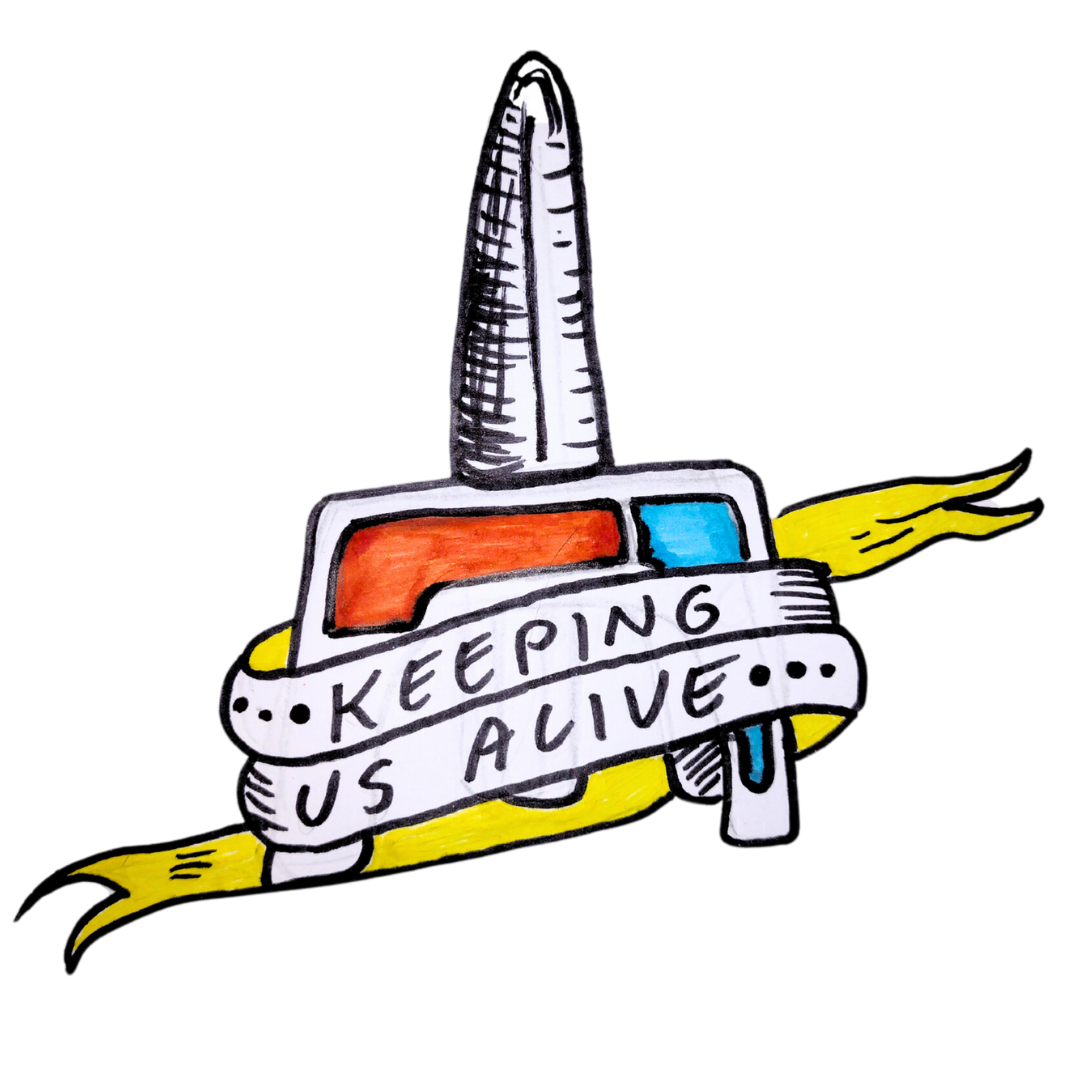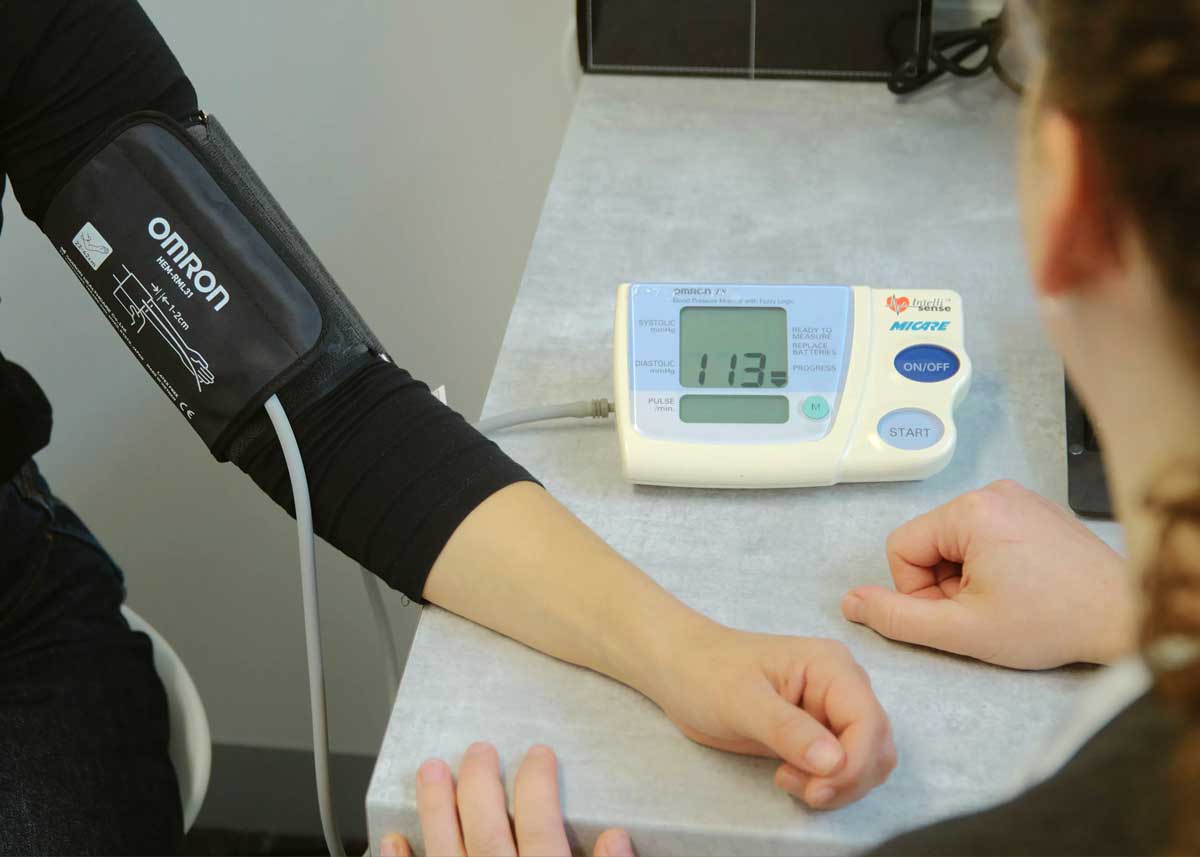
Programs providing naloxone to people leaving prison are now running in most Australian states and territories, with hopes they will continue to expand.
Naloxone is a medication that rapidly reverses the effects of an overdose on opioids.
Also known as narcan, it comes in the form of a nasal spray or injection. It can be used by anyone and does not need a lot of training. It does not have any side effects if it is used on someone not experiencing an overdose.
“It’s a nasal spray – it’s not brain surgery,” Australian Alcohol & Other Drugs Council CEO Melanie Walker told About Time. “It’s a really practical thing for people to have.
“You can’t do much harm with a nasal spray – it’s an actual medication that does no harm to someone if they’re not overdosing.”
Given that the period immediately after release from prison is especially high risk for overdoses, a number of countries around the world provide naloxone for free to people leaving prison.
There have been calls for this to be done in Australia for several years.
“When people are coming out of custodial settings, they’ve usually got a few things on their plates,” Walker said.
“There’s a lot to do. If you’re able to have that [naloxone] with you, rather than add it to the list of things you need to do, then it makes it all easier.”
Programs providing naloxone to people leaving prison are now running in most Australian states and territories, with hopes they will continue to expand.
Naloxone is a medication that rapidly reverses the effects of an overdose on opioids.
Also known as narcan, it comes in the form of a nasal spray or injection. It can be used by anyone and does not need a lot of training. It does not have any side effects if it is used on someone not experiencing an overdose.
“It’s a nasal spray – it’s not brain surgery,” Australian Alcohol & Other Drugs Council CEO Melanie Walker told About Time. “It’s a really practical thing for people to have.
“You can’t do much harm with a nasal spray – it’s an actual medication that does no harm to someone if they’re not overdosing.”
Given that the period immediately after release from prison is especially high risk for overdoses, a number of countries around the world provide naloxone for free to people leaving prison.
There have been calls for this to be done in Australia for several years.
“When people are coming out of custodial settings, they’ve usually got a few things on their plates,” Walker said.
“There’s a lot to do. If you’re able to have that [naloxone] with you, rather than add it to the list of things you need to do, then it makes it all easier.”

In recent years all Australian states and territories have introduced programs to give naloxone to some people leaving prison, except for Western Australia and the ACT.
Most of these programs are limited to those deemed to be at a high risk of an overdose or who were on an opioid replacement program while in prison.
There are concerns among drug harm minimisation advocates that these programs are “random”, and those leaving prison around the country are encouraged to ask for free naloxone before they are released.
In New South Wales, naloxone can only be given to someone leaving prison if it has been prescribed by a medical officer or credentialed health worker. Up to two supplies of nasal spray can be provided, and they will be placed in your property before you are released.
In Victoria, the Naloxone on Release Program provides all people in prison who were prescribed Medication Assisted Treatment for Opioid Dependency with naloxone when they are released, along with anyone else who asks for it.
Queensland currently provides naloxone to those who “might benefit from having access” to it when they are released, while a spokesperson for the South Australian Department for Correctional Services said people in prison are “empowered” to ask for it.
Those soon to be released in Tasmania and the Northern Territory who are “identified as at risk of opioid misuse” are provided naloxone and how-to guides.
Western Australia and the ACT do not provide naloxone directly to people leaving prison, instead directing them to sites in the community where it is provided for free.
While these programs have been welcomed, there is also a push for Australia to follow Scotland and provide naloxone to all people leaving prison as standard practice.
“It’s a natural part of handling it there,” Australian Injecting & Illicit Drug Users League Deputy CEO Ele Morrison told About Time. “You don’t have to identify yourself as a drug user, and it’s not something that gets forgotten because it’s done for every single person as they’re leaving.”
Many similar programs around the world have been proven to be highly successful in saving lives and preventing overdoses.
There is also a push for naloxone to be more available within prisons to help respond to overdoses.
In most prisons in Australia, only medical staff are given naloxone, rather than prison officers. The ACT is the only place where prison officers are given naloxone, while the Northern Territory includes it in prison emergency kits.
The ACT Inspector of Custodial Services (ICS) recommended that naloxone be given to people in prison recently as part of a report on a potential overdose at the Alexander Maconochie Centre.
If you are about to leave prison in Australia, drug harm minimisation advocates recommend asking for naloxone before you are released and to seek it out from pharmacies, needle syringe programs and community health organisations if you don’t get it.
“Naloxone is a wonderful tool,” Walker said.
“It would be really great if you were provided it when leaving prison, but, if you’re not, it’d be great if you could put that on your list of priorities when you’re out.
“It’s free – it’s something you can do that could save your life or the lives of a friend or family member.”

In recent years all Australian states and territories have introduced programs to give naloxone to some people leaving prison, except for Western Australia and the ACT.
Most of these programs are limited to those deemed to be at a high risk of an overdose or who were on an opioid replacement program while in prison.
There are concerns among drug harm minimisation advocates that these programs are “random”, and those leaving prison around the country are encouraged to ask for free naloxone before they are released.
In New South Wales, naloxone can only be given to someone leaving prison if it has been prescribed by a medical officer or credentialed health worker. Up to two supplies of nasal spray can be provided, and they will be placed in your property before you are released.
In Victoria, the Naloxone on Release Program provides all people in prison who were prescribed Medication Assisted Treatment for Opioid Dependency with naloxone when they are released, along with anyone else who asks for it.
Queensland currently provides naloxone to those who “might benefit from having access” to it when they are released, while a spokesperson for the South Australian Department for Correctional Services said people in prison are “empowered” to ask for it.
Those soon to be released in Tasmania and the Northern Territory who are “identified as at risk of opioid misuse” are provided naloxone and how-to guides.
Western Australia and the ACT do not provide naloxone directly to people leaving prison, instead directing them to sites in the community where it is provided for free.
While these programs have been welcomed, there is also a push for Australia to follow Scotland and provide naloxone to all people leaving prison as standard practice.
“It’s a natural part of handling it there,” Australian Injecting & Illicit Drug Users League Deputy CEO Ele Morrison told About Time. “You don’t have to identify yourself as a drug user, and it’s not something that gets forgotten because it’s done for every single person as they’re leaving.”
Many similar programs around the world have been proven to be highly successful in saving lives and preventing overdoses.
There is also a push for naloxone to be more available within prisons to help respond to overdoses.
In most prisons in Australia, only medical staff are given naloxone, rather than prison officers. The ACT is the only place where prison officers are given naloxone, while the Northern Territory includes it in prison emergency kits.
The ACT Inspector of Custodial Services (ICS) recommended that naloxone be given to people in prison recently as part of a report on a potential overdose at the Alexander Maconochie Centre.
If you are about to leave prison in Australia, drug harm minimisation advocates recommend asking for naloxone before you are released and to seek it out from pharmacies, needle syringe programs and community health organisations if you don’t get it.
“Naloxone is a wonderful tool,” Walker said.
“It would be really great if you were provided it when leaving prison, but, if you’re not, it’d be great if you could put that on your list of priorities when you’re out.
“It’s free – it’s something you can do that could save your life or the lives of a friend or family member.”
An Ombudsman investigation has found people in Canberra’s only prison paid nearly $125,000 to make phone calls across two years when this should have been free.
Should going to prison mean never being allowed to hug your partner or child? Is denying physical contact a just punishment, or does it harm families and human dignity? And what do human rights have to say about it?
While for the most part calls to mobiles are becoming cheaper, we clearly still have a long way to go.
Including seven children escaping youth detention in Tasmania, two men being charged over prison murder in Queensland, a coroner pushing for bans on spit hoods in prison in the Northern Territory and more.
Help keep the momentum going. All donations will be vital in providing an essential resource for people in prison and their loved ones.
All donations of $2 or more are tax deductible. If you would like to pay directly into our bank account to avoid the processing fee, please contact donate@abouttime.org.au. ABN 67 667 331 106.
Help us get About Time off the ground. All donations are tax deductible and will be vital in providing an essential resource for people in prison and their loved ones.
Your browser window currently does not have enough height, or is zoomed in too far to view our website content correctly. Once the window reaches the minimum required height or zoom percentage, the content will display automatically.
Alternatively, you can learn more via the links below.
Leave a Comment
Lorem ipsum dolor sit amet, consectetur adipiscing elit. Suspendisse varius enim in eros elementum tristique. Duis cursus, mi quis viverra ornare, eros dolor interdum nulla, ut commodo diam libero vitae erat. Aenean faucibus nibh et justo cursus id rutrum lorem imperdiet. Nunc ut sem vitae risus tristique posuere. uis cursus, mi quis viverra ornare, eros dolor interdum nulla, ut commodo diam libero vitae erat. Aenean faucibus nibh et justo cursus id rutrum lorem imperdiet. Nunc ut sem vitae risus tristique posuere.